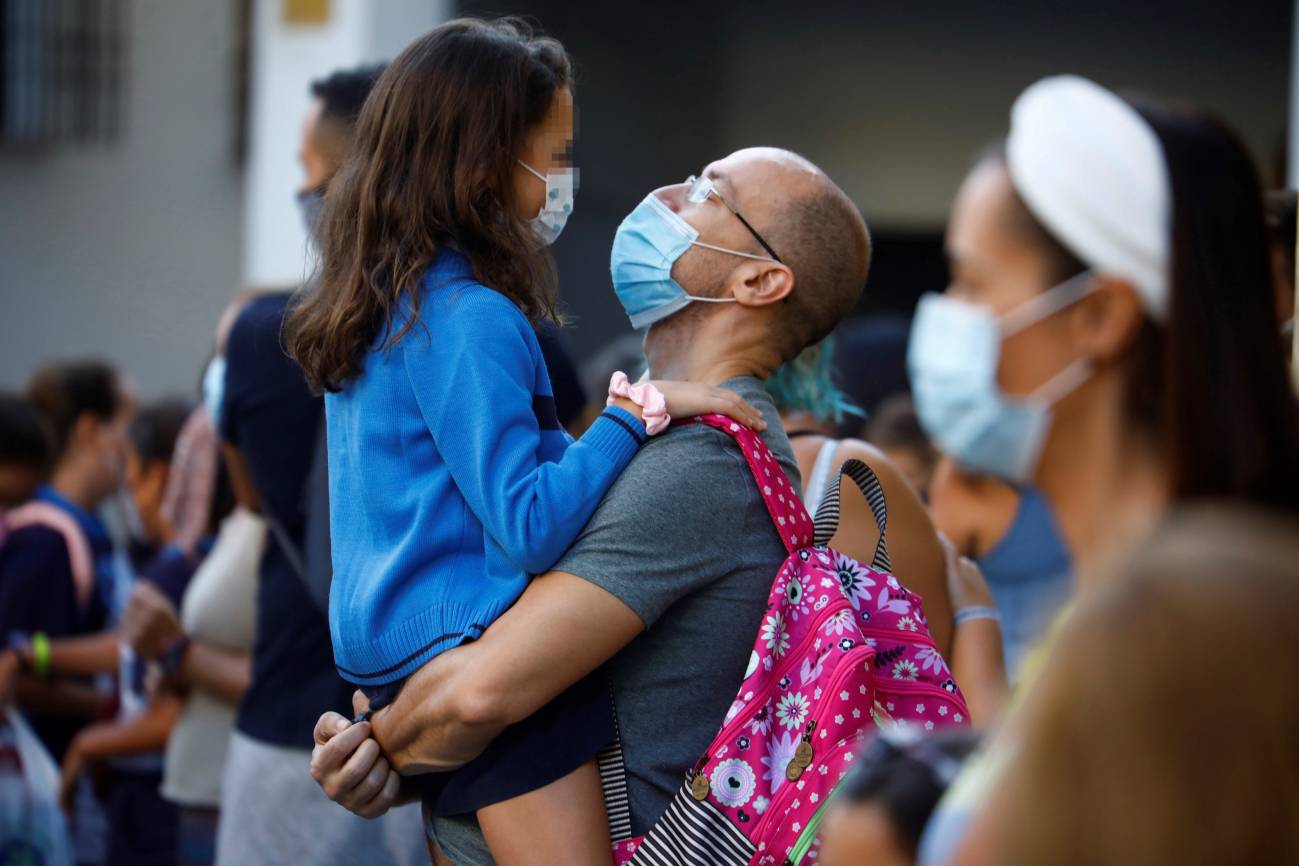For Ángel Hernández Merino, of the Vaccine Advisory Committee of the Spanish Association of Pediatrics, the most important thing about a vaccine against covid-19 available for children between 5 and 11 yearsof age is "to be prepared": "The first thing is to have it, thenwe will see if we have to use it". This implies having "maximum certainty" that the vaccine is safe, "because it would be a matter ofvaccinating healthy children" who would be mostly mildly affected by covid-19.
Francisco José Álvarez García, coordinator of the Vaccine Advisory Committee (CAV) of the AEP, warns that this association will only make a formal pronouncement on this point after the European Medicines Agency (EMA),which began in mid-October to evaluate the use of the BioNTech/Pfizer vaccine, Comirnaty, in children between 5 and 11 years of age. Its decision is expected in about a month's time.
If the ruling is positive, "pediatricians will alwaysbe in favor of protecting vulnerable population if there is an effective and safe vaccine," says Alvarez Garcia.
In the United States, the Centers for Disease Control and Prevention (CDC) approved last November 2 the BioNTech/Pfizer vaccine for 5-11 years of age, in two doses -each with one-third of the amount inoculated inadults- spaced three weeks apart.
"Similar to what was observed in the adult trials, the vaccination has shown nearly 91% effectiveness in preventing covid-19 in children aged 5-11 years," the CDC reported in a press release. In clinical trials, side effects were mild, similar to those seen in adults and other vaccines recommended for children.
Factors in favor...
In the vast majority of children the infection is mild or asymptomatic, but "there are also serious cases", recalls Álvarez García. This would be, for the coordinator of the Vaccine Advisory Committee (CAV), the main reason for approving vaccination in children, in the event of a favorable opinion from the EMA.
Also, that there is still uncertainty about syndromes such as long covid. "After vaccinating the entire population, are we going to leave children between five and eleven unvaccinated?
This expert assures that the vaccines against covid-19 could be administered together with the other vaccines approved for kids.
To Hernández Merino, the indirect benefits could include guaranteeing face-to-face teaching. It has been shown that contagion at school has not been important so far, and that children are not good transmitters of covid-19; their vaccination would help to keep it like that in the future.
... and against
The possibility of adverse effects so infrequent that they do not emerge in clinical trials is the main factor against children vaccination, says Álvarez García. This has happened with myocarditis in adolescents, a phenomenon only detected by the pharmacovigilance system after the vaccination began.
On this point, the AEP reminds on its website that "myocarditis and pericarditis occur very rarely after vaccination, but much more frequently if the natural infection is transmitted from another infected person".
Necessary for herd immunity?
One of the factors to be taken into account when deciding on vaccination in children will be its role in achieving herd immunity. Hernández Merino and Federico Martinón, Head of the Pediatrics Service of the Hospita lClínico Universitario de Santiago -and responsible for one of the trials of the Comirnaty vaccine in children in Spain- highlight the lack of knowledge on this point, partly because there is still no solid data on how long the immunityprovided by vaccines lasts.
Furthermore, "herd immunity is not a static concept," says Hernández Merino, who points out that it varies depending on what proportion of the population is immunized. For Álvarez García, the role of children can be important given that "they make up 10% of the population", and that in the 20 to 40 years age group 80% of the population is still not fully immunized.
There is no doubt that if children are not immune they could become a reservoir of the virus and a source of infection with new variants. "This is one of the important factors in favor of vaccination," says Alvarez Garcia.
More than 82% with complete regimen in children over 12 years of age
In Europe, people over 12 years of age can now be vaccinated with Comirnaty (BioNTech/Pfizer) and Spikevax (Moderna). The dose is the same as for adults. In Spain, more than 82 % of the population between 12 and 17 years of age is already fully vaccinated.

